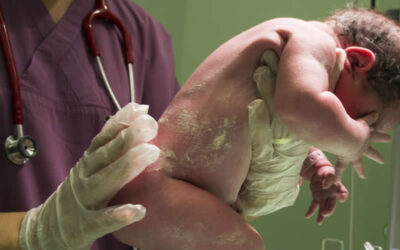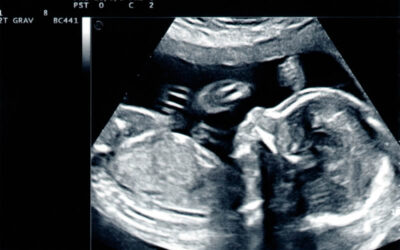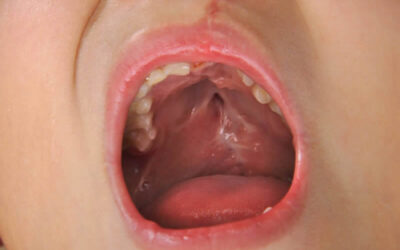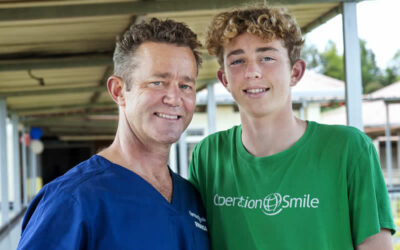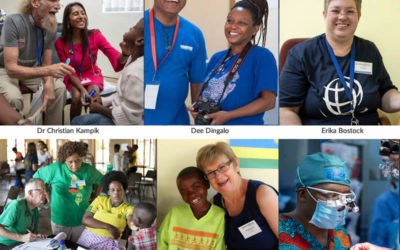Breast milk is universally regarded as the ideal source of nutrition for infants. It is rich in essential nutrients that promote healthy growth and development, as well as natural antibodies that protect newborns from disease.
Breastfed babies have a lower risk of developing allergies, asthma, respiratory infections, and gastrointestinal issues. They also have a reduced likelihood of obesity and chronic diseases later in life.
Challenges of breastfeeding
While breastfeeding is natural, not all new moms are able to feed their babies. Most problems – such as difficulty in latching, ‘lazy’ babies, insufficient milk supply and sore nipples – can be overcome with the help of health professionals, support groups and patience.
But for moms of babies born with cleft conditions, the challenges may be much greater. Owing to structural abnormalities in the lip or mouth, infants born with a cleft lip or palate may not be able to latch onto the breast to create a seal. They may have difficulty sucking or swallowing, leading to an increased risk of milk inhalation and aspiration pneumonia. If the child has a cleft palate, milk may escape through the gap in the roof of their mouth into the nose.
Alternatives to breast feeding
If the baby can’t suck efficiently and the mother doesn’t express, the milk supply dwindles rapidly. Then, there may be no option other than to use a breast milk substitute.
At Operation Smile, we have an Infant Feeding Policy that addresses the use of breast milk substitutes. Our staff and volunteers are rigorously trained in this policy to ensure these are used only when necessary and when it is in the best interest of the child’s health and development. Substitutes should not be prescribed routinely and should be reserved solely for situations where they are clinically indicated.
Concerns related to baby formula include:
- the availability of safe water
- accuracy of preparation (measuring the ratio of baby milk powder to water)
- cost
Infants born with cleft conditions are 9 times more likely to die within their first year of life than other infants. Feeding challenges contribute significantly to this risk. Without early support, many of these children face a higher risk of malnutrition and may be unable to safely undergo any surgery.
Lack of support for mothers of cleft babies
Seeing milk trickling out of your baby’s nostrils is extremely disturbing and upsetting for a new mom. Even more so, if you weren’t aware of the cleft.
Sadly, this can be the case in under-staffed hospitals, particularly in underprivileged, rural areas. Moms may get very little information or support before being discharged from hospital. This can result in inadequate milk intake, poor weight gain, and frustration for both baby and mother.
It’s essential that maternity nursing staff and doctors are aware of the possibility of cleft, and have the skills and knowledge to identify it and offer support to new moms. All moms should receive instructions for safe breast milk expression before they leave the hospital.
Cup feeding
In resource-poor communities, cup feeding is a safe alternative to breastfeeding. Unlike baby bottles and teats, cups are much easier to keep hygienically clean, reducing the risk of gastroenteritis. If the mother is able to express her milk, cup feeding is just as beneficial as breastfeeding.
We tend to think bottle feeding is the only alternative to breastfeeding. In fact, drinking from a cup or spoon is completely natural for babies – even prem and newborns. It’s ideal for Infants with cleft conditions.
Danger of malnutrition
According to the Global Burden of Disease Study (GBD), children with untreated cleft conditions are more than twice as likely to be underweight. In 2020, world wide nearly 600,000 children younger than 5 years were living with clefts, and of those, 200,000 were underweight. Sub-Saharan Africa and South Asia have the highest rates of underweight and malnourished children with cleft.
This creates a Catch-22 situation, where children need cleft surgery in order to improve their nutritional intake – but in order to receive surgery, they need to be a healthy weight.
At Operation Smile, we provide a holistic care programme to ensure that babies and children are ready for safe surgery. All potential surgical candidates are screened to very high standards.
If children are underweight, their parents receive information and support to improve the child’s overall health and nutrition. Those who don’t pass the screening process first time around are encouraged to return when the child has picked up weight.
When Fatima and Youssef brought their 1-month-old daughter, Janat, to Operation Smile Morocco in March 2020, she had lost half of her birth weight. Her cleft conditions made it impossible for her to eat properly, and her parents began to lose hope that she would survive.
Watch how despair turned to hope with the help of Operation Smile.


